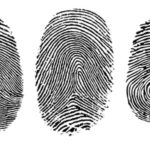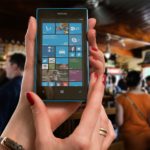Why a VPN is Essential for Your Smartphone
A Virtual Private Network, or VPN, is what comes in between you and the internet. What it does is it intercepts your data, both incoming and outgoing, and make changes so that to a third party, the data appears to have originated from or sent to the VPN server.

Source: Pixabay
Every device connected to the internet has what is called an IP address. This ties your phone to a physical location in the real world. Because data is sent in ‘packets’, each containing a source IP address and a destination IP address, the VPN server changes only your IP address. Meaning, a web server sees a request for access to the content on its site as originating from the VPN server. It sends the web content in packets, all bearing the destination IP address of the VPN server. The VPN server receives them, changes the destination IP address to that of your smartphone, and ensures that the data is sent to you.
Why do you need to use a VPN server?
On PCs, websites use secure HTTP. In other words, data transfer is secure and free from prying eyes. They use 128-bit or 256-bit encryption (the more there is, the better) to ensure this. But on smartphones, this would take up a lot of space and hence minimal apps are used for data access instead. However, these apps might not be able to provide you with the protection offered by secure websites. VPNs see to it that inbound and outbound data from your phone is encrypted.
On an unsecure Wi-Fi network (it is highly likely that you will connect to them while at, say a coffee shop or a bus station), your online activity is visible to anyone who wishes to know what you are doing. If you are not convinced about this fact, simply download and install the Wireshark utility on your PC and connect to one such unsecured Wi-Fi network – you will be able to see who is accessing what (you can see the name of the websites accessed, not just their IP addresses) at any given point of time.
When you connect to a VPN network, the encryption ensures that no one else can see which sites or data portals you are accessing. This is how you can protect yourself from hackers – with 3.5 billion internet users worldwide, they cannot attack everybody. Antivirus programs would detect something of this magnitude and swing into action, defeating them. So the first step for them to identify their targets, and launch isolated attacks, so that antivirus programs don’t see anything amiss, just a program/script running, and allow them. They look at devices which are likely to have sensitive data – banking logins and passwords, credit/debit card information – based on the websites visited, such as internet banking sites and shopping portals. On unsecure Wi-Fi networks, anyone can see which sites you visit.
You can prevent any of this from happening by using a VPN service.








